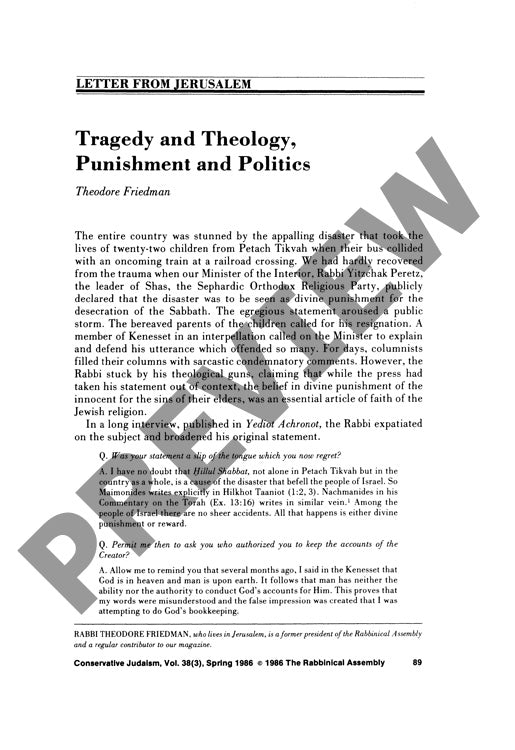Tragedy and Theology Punishment and Poli
Couldn't load pickup availability
When an Israeli minister declared a fatal bus accident killing twenty-two children to be divine punishment for Sabbath violations, he ignited a fierce theological and political debate that exposed deep rifts in Orthodox Judaism's approach to human suffering. Through analysis of Talmudic sources, interviews with religious authorities, and examination of public discourse, this research reveals a complex struggle between traditional retributive theology and modern moral sensibilities. While some rabbinical authorities defended Minister Peretz's position using classical texts, others challenged the wisdom and validity of attributing children's deaths to collective sin. The literal interpretation of Talmudic hyperbole emerges as a form of theological fundamentalism that not only contradicts other rabbinical teachings about divine providence's inscrutability but also conflicts with the Book of Job's explicit rejection of suffering-as-punishment theology. The selective use of religious sources to justify such positions represents an ideological regression that alienates secular populations and oversimplifies the multivocal nature of Jewish textual tradition. These findings suggest the need for interpretive approaches that better align with contemporary moral understanding while remaining faithful to Judaism's rich theological heritage.

More Information
-
Physical Description
-
Publication Information
Published 1986
ISBN
-
Publication Credits
Theodore Friedman

